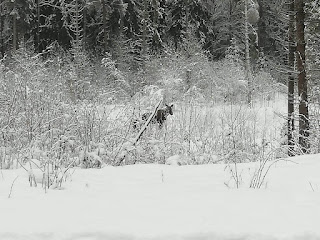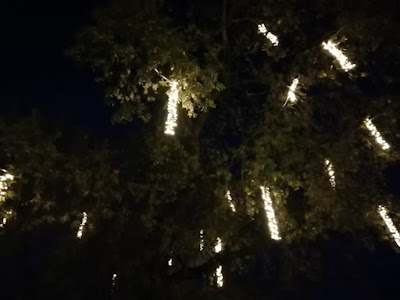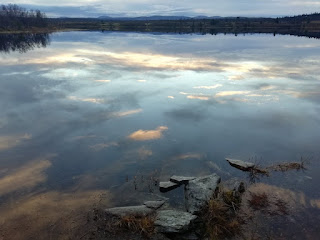A fresh perception
We suffer from perceptual oblivion: We have forgotten how to really notice ourselves and the world. The modern world, with emphasis on the written word, have created a deep rift in our experience, a detachment from bodily perception, our animal senses. And this has led to our current predicament and a world moving towards apocalyptic changes. This, in short, is the diagnosis in the philosopher David Abrams book Becoming animal. An earthly cosmology (2010).
Abrams medicine in this situation is a fresh perception, a new way of thinking enacted as much by the body as by the mind, an expanding new vision of our planet and ourselves which is animistic and participatory, and which simultaneously includes scientific perspectives on nature. "It is a perception that honors the immeasurable otherness of things, the way any earthborn presence exceeds the calculations we perform upon it - the manner in which each stone, each gust of wind, each termit-ridden log or gliding sea turtle harbors and bodies forth a creativity that resists all definition.This unique creativity ensures that we dont really perceive the beings around us unless we suspend our already-settled certainties, opening ourselves toward whatever pulse rides within each thing we meet. The expectation of a basic enigma at the heart of every ostensible "object" kindles a new humility within ourselves, engendering an empathic attunement to our surroundings and a compassionate resolve to do least harm." s 299f.
A different way of perceiving is needed. From within phenomenology the philosopher Maurice Merleau-Ponty describes the possibility for a science which sees the world not as an object, but as a field of potentiale which emerges in connection with the perception. One may say there are two different kinds of awareness which are at work in this perspective: One awareness is based on a view of the world as controlled and defined in premade conceptual categories, and the other awareness, which implies openness to the unknown and potentially novel in every experience. Merleau-Ponty advocates the latter, and says: "Nothing is more difficult than to know precisely what we see."
Indigenous peoples knowledge is another field where many voices want us to notice more, and perceive differently, of the world, in order to restore our relationship with it. In her fascinating book In the eye of the wild the anthropologist Nastassja Martin tells the story about her journey from our modern way of perceiving to a different and expanded perception, and how this transformation almost requires her life and her sanity. Her story begins when she is doing research on animism among the indigenous people in the deep forests of Russia. She starts having dreams about bears, and one day she meets a bear in the mountains who almost kills her, biting off a part of her jaw, while she is simultaneously hurting the bear with an ice-axe. The Even-people she is living with sees her now as a person who is half human, half bear, medka. Its a dissolving of boundaries - the bear has seen his part of humanity in her, and she has become partly a bear, she has literally lost a part of herself to the bear. Nastassja feels the confrontation with the bear has opened up fault lines in both of their bodies and their minds, in a meeting between mythical time and reality. What emerges in her experience is an animistic vision of reality, where there is an intention in nature that is external to people, a possibility of dialogue with the non-human, and a necessity in living in a communicating relationship with nature and not against it.
The perspectives from Abram, Merleau-Ponty and Martin are pointing to new possibilities, inviting us to notice more or differently of the world and ourselves, to open ourselves to the directly felt experience of things, the sensuous creaturely world directly encountered by our animal senses. Only by perceiving nature differently and as more than an object to be exploited, it will be possible for us to create a viable future.




Comments
Post a Comment